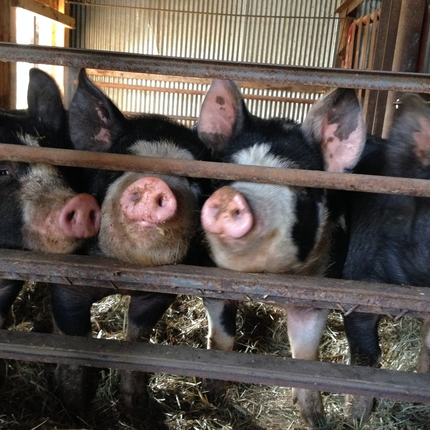By Katie Rock, former staff member
Just as the debate over water quality has shifted in recent years, debates over confined animal feeding operations (CAFOs) in Iowa continue to ratchet up. Increasingly, these two issues are seen as intertwined; one cannot be addressed without the other. Building on our previous post, this blog looks at legislation targeting livestock production.
Quality of life remains an issue in rural areas. Farmers want to make a living growing livestock, but that can conflict with neighbors who want an idyllic setting for a rural lifestyle. When mismanagement occurs, farmers can find themselves in a nuisance lawsuit with their neighbors. Conflict can also arise when property values decline with the presence of more CAFOs.
In 2017, Iowa enacted a law limiting the scope of nuisance lawsuits against CAFOs. These new provisions cap damages, limit who can sue, and create strict claim requirements. (Click here for a good summary of changes, starting on page 17.) The new law also makes all nuisance permanent, which means a CAFO can only be sued once, even if the nuisance recurs. Individual leaks of manure and runoff are considered temporary, rather than permanent nuisances, and can occur multiple times, resulting in multiple potential lawsuits.
Laws like this are in line with “Right to Farm” regulations passed in several states. These limit damages in lawsuits from the environmental impact of farming. An Iowa law passed in 2017 expands an existing statute that was challenged in 2004. The existing statute was found unconstitutional by the Iowa Supreme Court as applied to the facts of that case. Knowing these new laws are based on a weak foundation does nothing to deter litigation between CAFOs and their neighbors. The 2017 expansion is currently being challenged in the Iowa Supreme Court.
What can rural residents do to avoid being implicated in a CAFO lawsuit? Jefferson Farmers and Neighbors, a nonprofit organization focused on education and stopping the expansion of “factory farms,” has written an online booklet focusing on avoiding secondary liability in a CAFO lawsuit.
This year, the Iowa Legislature has started to swing back against CAFOs and the legislation passed in 2017. Anti-CAFO groups packed the capitol during the first week of session as Sen. David Johnson (I-Osceola) and Rep. Sharon Steckman (D-Cerro Gordo) introduced a suite of bills addressing how CAFOs are regulated in Iowa. Bills range from giving more local control to county officials in siting CAFOs, revamping the master matrix which sets administrative rules for CAFOs, and requiring more notification and transparency in siting, to a full moratorium on new or expanded CAFOs. None of the bills are expected to get much action this session, but represent a dramatic shift in approach.
These policies are missing incentives that would help beginning farmers. Many farm operators build a CAFO to expand their business and give an opportunity to the next generation. None of these bills address that reality, and neither party is stepping up to lead a new conversation.





